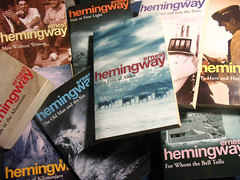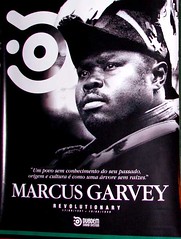AMSCO United States History 2015 Edition, Chapter 23 The Modern Era of the 1920s
| 8974340659 | Warren Harding | In November 1920, he was elected the 29th president of the United States. He was a Republican whose slogan was: "Return to Normalcy". His term was marked by scandals and corruption, although he was never implicated in any of the scandals. In August 1923, he died while traveling in the West. (p. 475-476) |  | 0 |
| 8974340660 | Harry Daugherty | Attorney General under President Harding who accepted bribes for agreeing not to prosecute certain criminal suspects. (p. 476) |  | 1 |
| 8974340661 | Albert Fall | Secretary of the Interior during Harding's administration. He was convicted of accepting bribes for granting oil leases near Teapot Dome, Wyoming. (p. 476) |  | 2 |
| 8974340662 | Teapot Dome | A government scandal involving a former United States Navy oil reserve in Wyoming that was secretly leased to a private oil company in 1921. (p. 476) |  | 3 |
| 8974340663 | Fordney-McCumber Tariff Act | This tariff passed in 1922, raised tariffs on foreign manufactured goods by 25 percent. It helped domestic manufacturers, but limited foreign trade, and was one cause of the Great Depression of 1929. (p. 476, 488) |  | 4 |
| 8974340665 | Calvin Coolidge | As vice president, he became president when Warren Harding died in August 1923. He won the presidential election of 1924, but declined to run in 1928. He was a Republican who believed in limited government. He summarized his presidency and his era with the phrase: "The business of America is business". (p. 477) |  | 5 |
| 8974340666 | Herbert Hoover | When Calvin Coolidge decide not to run for president in 1928, he was the Republican presidential nominee. He promised to extend "Coolidge Prosperity", and won the election. (p. 477) |  | 6 |
| 8974340667 | Alfred E. Smith | He was the Democratic presidential candidate in the 1928 presidential election. He was the former governor of New York and his opponent in the presidential race was Republican Herbert Hoover. As a Roman Catholic and opponent of Prohibition, he appealed to immigrant urban voters. (p. 477) |  | 7 |
| 8974340668 | standard of living | During the 1920s, the physical things that make life more enjoyable improved significantly for most Americans. Indoor plumbing and central heating became commonplace. By 1930, two-thirds of all homes had electricity. (p. 477) |  | 8 |
| 8974340670 | Henry Ford | By 1914, he had perfected a system for manufacturing automobiles using an assembly line. (p. 478) |  | 9 |
| 8974340671 | assembly line | In a factory, an arrangement where a product is moved from worker to worker, with each person performing a single task in the making of the product. (p. 478) |  | 10 |
| 8974340674 | consumerism | In the 1920s, this economic mindset was fueled by: homes with electricity, electrical appliances, affordable automobiles, increased advertising, and purchasing on credit. (p. 478) |  | 11 |
| 8974340675 | electric appliances | In the 1920s, refrigerators, stoves, vacuum cleaners, and washing machines became very popular as prices dropped due to reduced production costs and as electrical power to run them became more available. (p. 478) |  | 12 |
| 8974340676 | automobile | In the 1920s, this product had the largest impact on society. It caused a growth of cities and suburbs, and workers no longer needed to live near their factories. It provided job opportunities and was a much more efficient way of transportation. (p. 479) |  | 13 |
| 8974340677 | jazz age | Name for the 1920s, because of the popularity of jazz, a new type of American music that combined African rhythms, blues, and ragtime. (p. 480) |  | 14 |
| 8974340678 | radio | Allowed mostly young people to listen to recorded music. The first radio station went on the air in 1920. Previously, newspapers had been the only form of mass communications. (p. 480) |  | 15 |
| 8974340679 | Hollywood | The movie industry was centered here. The industry grew rapidly in the 1920s. Sound was introduced to movies in 1927. By 1929 over 80 million movie tickets were sold each week. (p. 480) |  | 16 |
| 8974340682 | flappers | In the 1920s, some young women shocked their elders by wearing dresses hemmed at the knee, cutting their hair short, smoking cigarettes, and driving cars. (p. 481) |  | 17 |
| 8974340683 | Margaret Sanger | She founded American Birth Control League; which became Planned Parenthood in the 1940s. She advocated birth control awareness. (p. 481) |  | 18 |
| 8974340685 | Lost Generation | Group of writers in 1920s, who shared the belief that they were lost in a greedy and materialistic world that lacked moral values. Many of them moved to Europe. (p. 481) |  | 19 |
| 8974340686 | F. Scott Fitzgerald | A novelist and chronicler of the jazz age. His wife, Zelda and he were the "couple" of the decade. His novel, "The Great Gatsby" is considered a masterpiece about a gangster's pursuit of an unattainable rich girl. (p. 481) |  | 20 |
| 8974340693 | Art Deco | The 1920's modernistic art style that captured modernistic simplification of forms, while using machine age materials. (p. 482) |  | 21 |
| 8974340696 | Great Migration | By 1930, almost 20 percent of African Americans moved out of the Southern United States to the North. (p. 482) |  | 22 |
| 8974340697 | Harlem Renaissance | The largest African American community of almost 200,000 developed in the Harlem section of New York City. It became famous in the 1920s for its talented actors, artists, musicians, and writers. This term describes this period. (p. 483) |  | 23 |
| 8974340698 | Langston Hughes | A leading 1920s African American poet from Harlem. Poems include "Dream Deferred", "The Negro Speaks of Rivers", "I, Too", and "Let America Be America Again" (p. 483) |  | 24 |
| 8974340699 | Duke Ellington | A leading 1920s African American jazz great from Harlem. (p. 483) |  | 25 |
| 8974340700 | Louis Armstrong | A leading 1920s African American jazz trumpeter from Harlem. (p. 483) |  | 26 |
| 8974340703 | Marcus Garvey | African American leader during the 1920s who founded the Universal Negro Improvement Association and advocated mass migration of African Americans back to Africa. He was deported to Jamaica and his movement collapsed. (p. 483) |  | 27 |
| 8974340704 | black pride | Many African American leaders agreed with Marcus Garvey's ideas on racial pride and self-respect. This influenced another generation in the 1960s. (p. 483) |  | 28 |
| 8974340705 | modernism | They took a historical and critical view of certain Bible passages and believed that they could accept Darwin's theory of evolution without abandoning their religion. (p. 483) |  | 29 |
| 8974340706 | fundamentalism | A Protestant Christian movement emphasizing the literal truth of the Bible and opposing religious modernism (p. 483) |  | 30 |
| 8974340707 | Scopes trial | A 1925 Tennessee court case in which Clarence Darrow and William Jennings Bryan argued the issue of teaching evolution in public schools. (p. 484) |  | 31 |
| 8974340708 | Clarence Darrow | A famed criminal defense lawyer, he defended John Scopes, a teacher who taught evolution in his Tennessee classroom. (p. 484) |  | 32 |
| 8974340709 | Volstead Act | The federal law of 1919 that established criminal penalties for manufacturing, transporting, or possessing alcohol. (p. 484) |  | 33 |
| 8974340710 | organized crime | In the 1920s, this type of crime became big business, as bootleggers transported and sold liquor to many customers. (p. 484) |  | 34 |
| 8974340711 | Al Capone | A famous Chicago gangster who fought for control of the lucrative bootlegging (liquor) trade. (p. 484) |  | 35 |
| 8974340712 | 21st Amendment | The amendment which ended the prohibition of alcohol in the United States, it repealed the 18th amendment. (p. 485) |  | 36 |
| 8974340713 | quota laws of 1921 and 1924 | Laws passed to limit immigration. (p. 485) |  | 37 |
| 8974340714 | Sacco and Vanzetti Case | A criminal case of two Italian men who were convicted of murder in 1921. They were prosecuted because they were Italians, atheists, and anarchists. After 6 years of appeals they were executed in 1927. An example of the effects of the First Red Scare. (p. 485) |  | 38 |
| 8974340715 | Ku Klux Klan | A secret society created by white southerners in 1866. They used terror and violence to keep African Americans from exercising their civil rights. (p. 486) |  | 39 |
| 8974340716 | Birth of a Nation | A popular silent film, which portrayed the KKK during Reconstruction as heroes. One of the most influential films in history due to its advanced technology and film-making techniques. (p. 486) |  | 40 |
| 8974340717 | Blacks, Catholics and Jews | The KKK directed hostility toward these groups in the North. (p. 486) |  | 41 |
| 8974340722 | reparations | As part of the Treaty of Versailles, Germany was ordered to pay $30 billion to the Allies. (p. 488) |  | 42 |
| 8974340723 | Dawes Plan | A 1924 plan, created by Charles Dawes in which the United States banks would lend large sums to Germany. Germany would use the money to rebuild its economy and pay reparations to Great Britain and France. Then Great Britain and France would pay their war debts to the United States. After the 1929 stock market crash, the loans to Germany stopped. (p. 488) |  | 43 |

